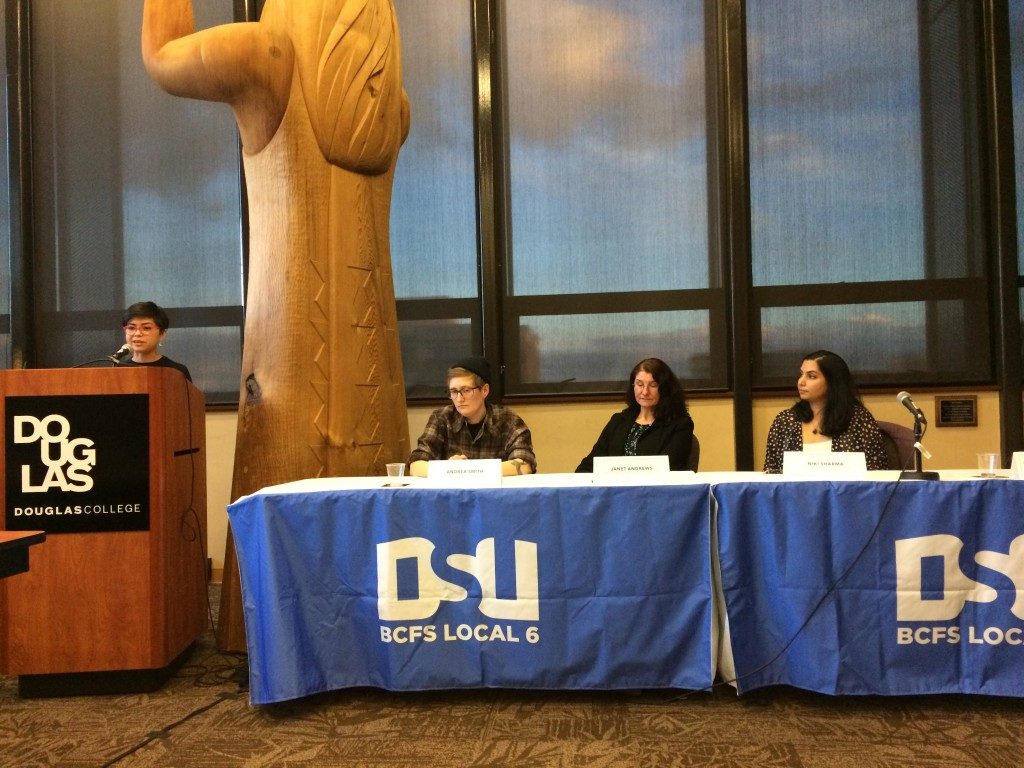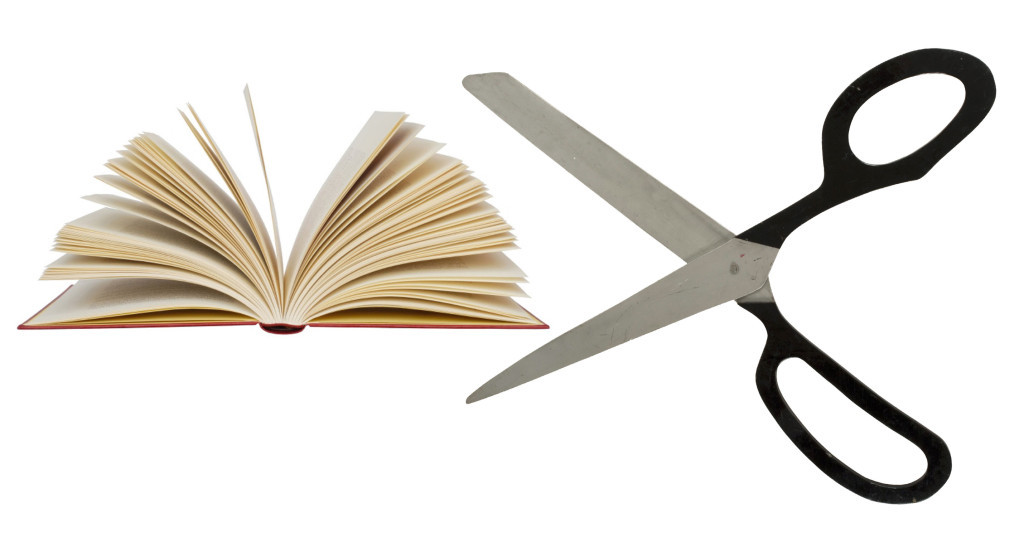
Feminism in action panel offers words of hope and support
By Jessica Berget, Staff Writer
The Douglas College Women’s Collective gave justice to the phrase ‘giving women a seat at the table,’ by giving them all the seats at the Women in Social Justice, Feminism in Action panel in the Aboriginal Gathering Centre on February 22. It was a panel filled with students, staff, and many other members of the community.
Dr. Ethel Gardener, an Elder-in-Residence and a Stó:lō member of the Skwah First Nation, welcomed the panel’s attendees and contributors to Coast Salish territory. Gardener gave acknowledgement and a quick history of the Stó:lō people, and concluded with a brief prayer in Halq’eméylem, the language of her people.
The discussion consisted of four speakers, all of whom were women who have dedicated their work to social activism and women’s rights. Each spoke about their experiences with social justice, sexism, and being a woman in male-dominated industries.
The first speaker was Andrea Smith, founder of Sidesaddle, a ‘woman focused—everyone welcome’ biking boutique located in Vancouver. Smith gave an amusing account on the history of cycling, described why and how she started her own biking company and the disappointing challenge of hiring women mechanics.
“In terms of hiring women, that’s been a real challenge because the industry is so sexist that there aren’t many female mechanics,” Smith said. “Even as a female mechanic, and a leader of the industry, when I worked at other bike shops, it was really hard to get anywhere near the tools.”
Smith detailed how exclusive and intimidating the biking community can be for women. She also addressed how vast the gender imbalance in competitive cycling is, and how vital it is to have a positive attitude.
“I think as activists, we can forget about the importance of pleasantness. We’re always in the struggle and have to take everything very seriously, but the whole point is so we can all live a good life and be friends in convivial spaces.”
The second speaker was Janet Andrews, who has been secretary treasurer at the New Westminster District Labour Council for 34 years. Andrews gave a speech voicing her concern about the lack of women in politics, and the importance of women becoming more involved in the political landscape.
“It’s really important for women to be engaged politically, as well as socially, because that’s where the laws that govern us really come about,” said Andrews. “When you look at who, politically, is getting the benefit, quite often they are mostly men. A lot of women are single parents, or heads of the household, so when we have these inequalities, they really do affect us as women and it’s important for us to address that.”
Andrews touched on the importance of having allies in social justice and the support they can give to the movement. She also gave a supportive message concerning the barriers with which women are confronted.
“I think [it’s important to] look at barriers as something to overcome or get around, and not as a complete road block. Never stop dead; always look for a way to shape that. We’ll get around it.”
The significance of women having ‘a seat at the table’ was illustrated by Andrews.
“If you’re not at the table, you’re on the menu.”
Niki Sharma, the third presenter of the panel, is a lawyer and a Vancity board member. Sharma’s speech described her experiences as a woman of color in a male-dominated work environment, and the hardships she has to face in that position. She detailed how her ethnicity seemed to always be a defining factor for herself in her work, and how she was affected by that.
“It’s tough. You put your armour on and you face it, but it hurts,” said Sharma.
Sharma shared three pieces of advice she would have given herself both as a student and as a woman entering the workforce: Be prepared, be resilient, and be supportive.
“Be prepared. When you’re in school, and you’re learning about all these ideas, and you have all these passions about changing the world, there can be a real conflict between that belief and reality when you enter the workforce. We can talk about feminism, we can talk about the way the world should be, but when you start working, you’ve got to deal with the way the world is.”
Tl’ehskwiisimka Marshall, member of the Ahousaht First Nations and chairperson of the BC Federation of Students, was the final speaker of the panel.
Marshall talked about stumbling upon an Aboriginal support group that aided her in her first year of post secondary education, and how helpful it is to be surrounded by people who share the same experiences. She also talked about the importance of education in activism and the challenges she faced being a woman in a political environment.
“It’s not easy being an Indigenous woman in this position, and it’s not easy being a woman in general. The political landscape right now is pretty bleak.”
There is light in the darkness when it comes to education in activism, as Marshall makes clear in her closing speech, and it appears that patience and understanding is the key.
“What’s kept me sane and grounded throughout that is remembering that things like sexism and racism are something that is learned and people aren’t born that way, and that means there is an opportunity to educate people,” said Marshall. “It’s important for us to remember to be patient and to not attack people, because everyone is coming from a very different experience and background […] we have to remember to be patient with each other.”


